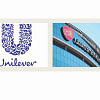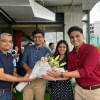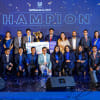Unilever in partnership with CIRCULAR starts plastic collection

Unilever Bangladesh Limited (UBL) and CIRCULAR, a social purpose driven organisation involved in plastic waste management, joined hands to collect 1,000 tonnes of plastic from Dhaka in the next one year.
The plastic wastes (flexible, single-use and rigid) will be collected from the two city corporations of Dhaka from June this year to May 2023, Unilever said in a statement today.
According to World Bank data, less than one-third (30 per cent) of the plastic waste produced in Bangladesh is collected and only 37 per cent of the collected plastic waste is recycled while the remaining is landfilled, among which an estimated 24,032–36,047 tonnes are dumped in the river system.
To prevent this environmental catastrophe caused by plastic waste pollution, Unilever Bangladesh believes it is important to build a sustainable circular loop that contributes to circular economy and sustainable development goals (SDGs).
UBL, the country's oldest and largest fast-moving consumer good (FMCG) company, has built multi-stakeholder models with diversified partners to collect 10,000 tonnes of plastic from the environment by 2023.
Therefore, the latest plastic collection collaboration with CIRCULAR, is a testament of its continuous progression towards UBL's commitment to improve health of the planet and environment by collecting more plastics.
In 2021, UBL has launched the biggest municipal backed plastic waste collection project of Bangladesh in collaboration with Narayanganj City Corporation and UNDP.
Unilever in partnership with CIRCULAR will work on building a sustainable and equitable reverse supply chain for the recovery of all kinds of post-consumed plastics waste.
CIRCULAR's plastic collection model will help in bringing together the waste collectors, informal collections known as tokais and ferrywalas together with the scrap dealers to form a network, increasing the transparency and traceability of the supply chain.
Furthermore, it works at households' level to create awareness about the harmful effects of plastics pollution and the need for segregation at source to recover all plastics to improve their recyclability.
Zaved Akhtar, chief executive officer and managing director of Unilever Bangladesh Limited, said: "Our value is to do business sustainably and leave behind a thriving world for future generations."
"We want to ensure that plastic stays in the economy and out of the environment. As a responsible company, we are committed to playing our part."
"However, plastic pollution is too big for us to solve alone. We believe that this is a collective responsibility, and each stakeholder needs to play an active role in managing plastic waste," he said.
"We are advocating for systems change to create a circular economy for plastics. In reaching this important partnership with CIRCULAR, we both acknowledge that the issue of plastic waste is a shared responsibility. This crisis requires bold action across the value chain to develop and scale up collection which is critical in the transition towards a circular economy model. We need to act immediately to take responsible actions and help Bangladesh's Green Growth Strategy as per the government's 2100 Delta Plan."

 For all latest news, follow The Daily Star's Google News channel.
For all latest news, follow The Daily Star's Google News channel. 








Comments